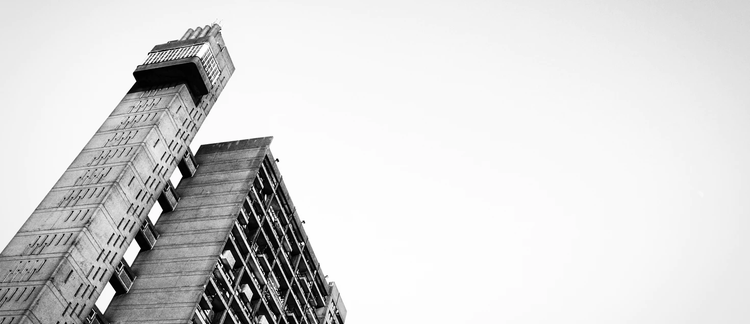The idea of a working-class avant-garde may seem a contradiction to some. The avant-garde, so often an elite realm of the arts, has proved to favour those with the requisite social, cultural and economic capitals to succeed in this competitive arena. Indeed, studies such as John Carey’s divisive text, Intellectuals and the Masses, have understood the high intellectualism of the twentieth-century avant-garde to have developed in response to the improved education of the mass populace: a means to retain the divide between the masses and the elite. Its obscurity has furthermore been thought inconsistent with working-class cultures and collective ideals. This collection confronts this perceived divide by examining the avant-garde artists and writers who were born to the conditions of the working-class. The scope of figures is broad – from DH Lawrence and Robert Colquhoun, to Garth Evans and Mark E. Smith – and the definition of ‘working-class’, of ‘avant-garde’, and of ‘British’, naturally adapt within this collection according to the nation’s changing cultural, social and political landscape. This collection highlights not only the diversity of working-class voices within the twentieth-century British avant-garde, but also examines the changing conditions that provoked, influenced and inspired them.This Special Collection has been guest edited by Dr Leon Betsworth, Dr Alexandra Bickley Trott, and Dr Nick Lee.
Featured image by Dan Seddon / Unsplash
The Working-Class Avant-Garde
‘The Substance of Paint’: Class and Materiality in the Work of Ralph Balson
Georgina O'Donnell Cole and Shane Michael Haseman
Also a part of:
Special Collections
-
Beyond Text: Cross-disciplinary Perspectives on Textuality
Visual Rhetorics of Humour: The Formation and Dissemination of Stereotypes through Cartoons and Memes
Diversity and Competition within the Latin Church: The Secular-Mendicant Controversy and its Long Aftermath (13th–20th Centuries)
Thinking the Political: Theory, Literature, Practice
Poetry Off the Page: Intersecting Practices and Traditions in British Poetry Performance
Humour as a Human Right
Cultural Heritage Data for Research: Opening Museum Collections, Project Data and Digital Images for Research, Query and Discovery
Literature as Imaginary Archive: Ephemera and Modern Literary Production
Caliban's Mirror: Reflections of James Joyce and Oscar Wilde
Cultural Representations of Machine Vision
The Public Curatorship of the Medieval Past
Medieval Minds and Matter
Representing the Medieval in Popular Culture: Remembering the Angevins
The Politics and History of Menstruation: Contextualising the Scottish Campaign to End Period Poverty
Production Archives 03: Archival Practices
Production Archives 02: Production Contexts
Production Archives 01: Puppets for Action
Representing Classical Music in the Twenty-First Century
The Pathological Body: European Literary and Cultural Perspectives in the Age of Modern Medicine
Binary Modernisms: Re/Appropriations of Modernist Art in the Digital Age
Local and Universal in Irish Literature and Culture
Reading in Ruins: Exploring Posthumanist Narrative Studies
The Language of Perspective
Nancy Astor, Public Women and Gendered Political Culture in Interwar Britain
The Working-Class Avant-Garde
Colonialities in Dispute: Discourses on Colonialism and Race in the Spanish State
Powering the Future: Energy Resources in Science Fiction and Fantasy
Writers and Intellectuals on Britain and Europe, 1918–2018
Literature, Law and Psychoanalysis
Muslims in the Media
Encounters between Asian and Western Art in the 20th and 21st centuries: a liberating influence for Asia?
Waste: Disposability, Decay, and Depletion
Pride Revisited: Cinema, Activism and Re-Activation
New Approaches to Late Medieval Court Records
Utopian Art and Literature from Modern India
Right-Wing Populism and Mediated Activism: Creative Responses and Counter-Narratives
Representing Climate: Local to Global
Cultivating Spheres: Agriculture, Technical Communication, and the Publics
Freedom After Neoliberalism
The Medieval Brain
Remaking Collections
New Approaches to Medieval Water Studies
Imaginaries of the Future 01: Bodies and Media
Imaginaries of the Future 02: Politics, Poetics, Place
Imaginaries of the Future 03: Utopia at the Border
Postcolonial Perspectives in Game Studies
Station Eleven and Twenty-First-Century Writing
#Agreement20
What’s Left? Marxism, Literature and Culture in the 21st Century
New Voices in Jewish-American Literature
Authors, Narratives, and Audiences in Medieval Saints’ Lives
From TV To Film
American Literature & the Transnational Marketplace
Mnemosyne
Healing Gods, Heroes and Rituals in the Graeco-Roman World
The Abolition of the University
